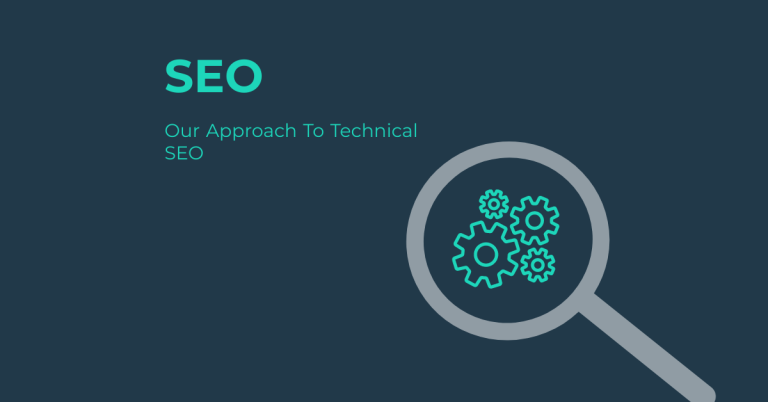Search engine optimisation (SEO) is a crucial component of any digital marketing strategy. However, one of the most common questions that businesses and website owners ask is, “How long does SEO take to work?” The truth is, there’s no one-size-fits-all answer to this question. SEO is a long-term strategy that requires patience, persistence, and consistent effort. In this article, we’ll explore the factors that influence how long it takes for SEO to show results and provide insights into what you can expect when implementing an SEO strategy.
Key Takeaways
- On average, it takes 4 to 12 months to start seeing significant results from SEO efforts. However, this timeline can vary greatly depending on factors such as website age, industry competitiveness, and the effectiveness of the SEO strategy.
- The time it takes for SEO to work is influenced by various factors, including website authority, content quality, keyword competitiveness, technical SEO, and backlink profile. Understanding these factors can help set realistic expectations for SEO progress.
- SEO is a long-term strategy that requires patience and persistence. It offers sustainable growth, compound returns, cost-effectiveness, and helps build brand authority over time. Quick fixes or overnight success are not realistic expectations in SEO.
- For those interested in mastering SEO, it typically takes 4 to 6 months to learn the basics, while becoming proficient can take 1 to 3 years of consistent learning and practice. Continuous learning is essential due to the ever-evolving nature of SEO.
- While SEO is inherently a long-term process, results can potentially be accelerated by focusing on low-competition keywords initially, ensuring a solid technical foundation, creating high-quality content consistently, building quality backlinks, and regularly analysing and refining the SEO strategy.
Understanding the SEO Timeline
Before delving into the specifics of how long SEO takes to work, it’s essential to understand that SEO is not a quick fix or an overnight solution. It’s a gradual process that involves multiple factors and can take several months to yield significant results. According to various studies and expert opinions, it typically takes between 4 to 12 months to start seeing noticeable improvements in search engine rankings and organic traffic. However, it’s crucial to note that this timeline can vary greatly depending on numerous factors, including:
- The age and authority of your website
- The competitiveness of your industry and target keywords
- The quality and relevance of your content
- The effectiveness of your on-page and off-page optimisation efforts
- The current state of your website’s technical SEO
Why Does SEO Take So Long?
One of the most common questions that follows “How long does SEO take to work?” is “Why does SEO take so long?” There are several reasons for this:
1. Search Engine Algorithms Are Complex
Search engines like Google use sophisticated algorithms that consider hundreds of ranking factors. These algorithms are constantly evolving, making it challenging to achieve and maintain high rankings quickly.
2. Building Authority Takes Time
Search engines favour websites that have established authority and credibility in their respective niches. Building this authority through quality content creation and earning backlinks from reputable sources is a gradual process that can’t be rushed.
3. Competition Is Fierce
Depending on your industry and target keywords, you may be competing against well-established websites that have been optimising their content for years. Overtaking these competitors in search rankings requires sustained effort and patience.
4. Content Creation and Optimisation Is Ongoing
Effective SEO requires a consistent flow of high-quality, relevant content. Creating, optimising, and promoting this content takes time and resources.
5. Technical Improvements Take Time to Implement
Addressing technical SEO issues, such as improving site speed, fixing broken links, and enhancing mobile responsiveness, can be time-consuming, especially for larger websites.
How Long Does It Take to Rank on Google?
When it comes to ranking on Google, the timeline can vary significantly based on several factors. For new websites, it can take anywhere from 3 to 6 months to start seeing some organic traffic. However, achieving a position on the first page for competitive keywords might stretch this period from 6 months to even a year, or sometimes longer.
A study by Ahrefs found that only 5.7% of all studied pages ranked in the Top 10 search results within 1 year for at least 1 keyword. This statistic underscores the fact that ranking on Google is a long-term endeavour that requires patience and persistence.
Factors Influencing SEO Timeline
Several key factors can impact how long it takes for your SEO efforts to bear fruit:
1. Website Age and Authority
Older websites with established domain authority typically see faster results compared to new websites. This is because search engines tend to trust older, more established sites.
2. Content Quality and Relevance
High-quality, relevant content that addresses user intent is more likely to rank quickly. Consistently producing valuable content can accelerate your SEO progress.
3. Keyword Competitiveness
Ranking for highly competitive keywords generally takes longer than ranking for less competitive, long-tail keywords. It’s often beneficial to start with less competitive keywords and gradually work your way up.
4. Technical SEO
A website with a solid technical foundation (fast loading times, mobile-friendliness, proper indexing) is more likely to see quicker SEO results.
5. Backlink Profile
Quality backlinks from authoritative websites can significantly boost your SEO efforts. However, building a strong backlink profile takes time and effort.
How Long Does It Take to Learn SEO?
For those interested in mastering SEO themselves, the question “How long does it take to learn SEO?” often arises. The answer, much like SEO itself, varies depending on several factors:
- Your existing knowledge of web technologies
- The amount of time you can dedicate to learning
- The resources and learning methods you use
- Your ability to apply theoretical knowledge in practical scenarios
On average, it takes about 4 to 6 months to learn the basics of SEO for beginners. However, becoming proficient in SEO can take anywhere from 1 to 3 years of consistent learning and practice. It’s important to note that SEO is an ever-evolving field. Even experienced professionals need to continually update their knowledge to stay current with the latest trends and algorithm changes.
SEO as a Long-Term Strategy
Understanding that SEO is a long-term strategy is crucial for setting realistic expectations and planning your digital marketing efforts effectively. Here’s why a long-term approach to SEO is beneficial:
1. Sustainable Growth
While short-term tactics might provide quick wins, a long-term SEO strategy focuses on sustainable growth. This approach helps build a solid foundation for your online presence that can withstand algorithm updates and market changes.
2. Compound Returns
Much like compound interest in finance, the effects of SEO compound over time. As your website gains authority and improves its rankings, it becomes easier to rank for more competitive keywords, leading to exponential growth in organic traffic.
3. Cost-Effectiveness
Although SEO requires an initial investment of time and resources, it becomes increasingly cost-effective over time. Unlike paid advertising, which stops delivering results as soon as you stop paying, the benefits of SEO can continue long after the initial work is done.
4. Brand Authority
A long-term SEO strategy helps establish your brand as an authority in your industry. As you consistently produce high-quality content and improve your search rankings, you build trust with both search engines and users.
Tips for Accelerating Your SEO Results
While SEO is inherently a long-term strategy, there are ways to potentially speed up your results:
- Focus on low-competition, long-tail keywords initially
- Ensure your website has a solid technical foundation
- Create high-quality, valuable content consistently
- Build quality backlinks through outreach and content promotion
- Optimise for local SEO if applicable to your business
- Leverage social media to increase content visibility and engagement
- Regularly analyse and refine your SEO strategy based on performance data
If SEO is done correctly, it typically takes between 4 to 12 months to start seeing significant results. However, this timeline can vary greatly depending on numerous factors, including your website’s age, the competitiveness of your industry, and the effectiveness of your SEO strategy.It’s crucial to approach SEO with a long-term mindset.
While it may take time to see results, the benefits of a well-executed SEO strategy are substantial and long-lasting. By consistently producing high-quality content, optimising your website’s technical aspects, and building authority in your niche, you can achieve sustainable growth in organic traffic and improved search engine rankings.
Remember, SEO is not a one-time effort but an ongoing process. Search engines are constantly evolving, and so should your SEO strategy. Stay informed about the latest SEO trends and algorithm updates, and be prepared to adapt your approach as needed.Ultimately, the key to SEO success lies in patience, persistence, and a commitment to providing value to your audience.
While the journey may be long, the rewards of effective SEO – increased visibility, traffic, and conversions – make it a worthwhile investment for any business looking to thrive in the digital landscape.




